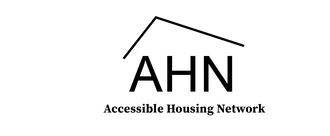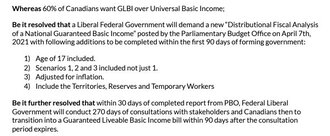-
Tell Parliament: We Need Accessible Housing NOW!Over 22% of Canadians have a disability, and yet there is no law in Canada requiring that housing be accessible. Seniors and people with disabilities are struggling in housing which does not meet their needs. The cost of building a new apartment is the same whether it is accessible or not, so why are we not building accessible housing?143 of 200 SignaturesCreated by Kate Chung
-
Write a letter to Canadian Leaders: Demand an immediate ceasefire in GazaPrime Minister Justin Trudeau is a world leader and as citizens/residents it is our perogative to hold our leaders to account. Citations: ⒈https://www.reuters.com/world/middle-east/gaza-west-bank-death-toll-reaches-2383-palestinians-ministry-2023-10-15/ ⒉https://www.msn.com/en-gb/news/world/gaza-facing-real-catastrophe-as-hospitals-only-have-hours-of-fuel-left-while-food-and-water-run-low-or-out/ar-AA1ij9mI ⒊https://www.independent.co.uk/news/world/middle-east/gaza-strip-palestine-evacuation-israel-siege-b2430912.html ⒋https://www.aa.com.tr/en/middle-east/over-last-week-israel-killed-47-families-in-gaza-made-up-of-500-palestinians-news-agency/3020636246 of 300 SignaturesCreated by Adrian Vetis
-
Make your vote count: Portional RepresentationIn 2015 Justin Trudeau said that the election in that year would be the last election that would be decided by "first past the post." He then rejected the recommendations presented by the committee that was formed to study electoral reform and in the last election formed a coalition with the NDP, exactly what would have happened if the election had been decided by proportional representation. Don't be afraid of change. Let the party leaders know that you want your vote to count by implementing proportional representation12 of 100 SignaturesCreated by David Hatto
-
Emergency Support For Disabled Canadian's #DERB #CDB #C-22We, the undersigned, citizens and residents of Canada, call upon the Government of Canada to create and implement a disability emergency relief benefit to provide immediate support to people with disabilities while awaiting the implementation of the Canada Disability Benefit.17 of 100 SignaturesCreated by Jeffrey Salisbury
-
Help us Breathe Easier in Schools – An Urgent Plea Regarding the Greenbelt and Air QualityEnough is enough. Now is the time to make sure we have a safe September. Now is the time to make sure every student and education worker walks into a safe, healthy environment. Let’s protect them by getting “back to basics” and providing clean air for them to breathe. Help us remind the Ontario government of its duty to protect students and education workers. Demand they take responsibility for this terrible failure to protect us all. Insist that they act to provide a safe September, and invest those unspent tax dollars on improvements to air quality in our schools - for the sake of our communities and healthcare system.529 of 600 SignaturesCreated by Ontario School Safety

-
Ask our politicians to stop fossil fuel subsidiesWe need to recapture our politicians from the undue influence of fossil fuel companies who are even helping to write our government’s climate policies. Recently, for example, the government of Alberta granted 4.3 billion to fossil fuel companies at a time when people are unable to find a family doctor in this province, and at a time when at least two large companies stream-lined their operations by laying off workers. Meanwhile forest fires raged out of control all across the country, affecting peoples lives in several negative ways.10 of 100 SignaturesCreated by Mildred Thill
-
Mandate condos to offer compostingIt’s a step backwards in our society to build housing that does not promote environmental living practices. Just because it may be more convenient certainly doesn’t make it acceptable. We must act locally to make the changes necessary in every realm of living to address the real threats of pollution and climate change.34 of 100 SignaturesCreated by Shannon Haggerty
-
Stop Politicizing Safe SupplyIndividuals across Canada are dying from toxic substances. This toxicity is a direct result of current drug prohibition policy that is based on Colonial-era legislation now understood to be racist and not based on evidence for how to manage the potential harms associated with people's use of different substances. My own son died of Fentanyl poisoning at age 21 after losing access to a safer supply and lack of effective treatment options. Safe Supply, separating people from lethally toxic illicit supply, is one part of stemming the horrific tide of death and harms from toxic drugs in Canada. On May 29 (not 31) the House of Commons will vote on an opposition motion to end all safe supply programs. We need to rally all MPs, across all parties, to not support this motion.191 of 200 SignaturesCreated by Glenn Mahoney
-
Studying GLBI Scenarios changes GenerationsMany aspects of GLBI are not known, such as no example has been given about the Disability portion, and how the non-income tested portion will work. We're asking you Leah, to be detailed and precise for the PBO, all 3 scenarios include much higher earners with higher benefits for those with lower incomes as well, and because Canada deserves correct answers before it becomes a campaign promise again.8 of 100 SignaturesCreated by Joseph Vander Meer
-
Stop Foreign Interference in Canada—Hold Leaders AccountableCanada’s democracy is precious. When our political leaders prioritize foreign interests over Canadian sovereignty, everyone’s rights are at risk. Premier Danielle Smith’s actions—asking the U.S. government to intervene in our election—represent a dangerous threat to our democratic independence. Conservative leader Pierre Poilievre’s refusal to accept critical national security briefings shows he is unwilling to face these threats seriously. This is not just political maneuvering—it’s about protecting the fundamental integrity of Canada’s democracy. If we don’t demand accountability from our leaders now, we risk losing the democratic freedoms we hold dear.2 of 100 SignaturesCreated by Carlos O
-
Save Our Natural Health ProductsNatural health products (NHPs) play an essential role in the wellbeing of Canadians. They are an important piece of empowering citizens to care for themselves at home, and as a way to prevent illness. Natural health products include items such as supplements (Zinc, Magnesium, Omega 3, etc.), natural body care products, homeopathic medicines, and traditional medicines (herbal medicines, traditional chinese medicines, etc.). Many Canadians turn to these products to be proactive with their health. Canadians know our health system is strained. Why would we want to impose more barriers for people to access proactive health? 1/5 NHP companies said they are considering leaving Canada altogether. Over 70% of companies said they would have to limit their product line to prioritize what was most profitable. These new regulations will crush small NHP businesses, and drive up costs for the products that remain in the market. These new regulations will make natural health products difficult to access.9 of 100 SignaturesCreated by Bronwen Jones
-
Make the CDB non-reportable for taxes!Dear Minister Freeland and Minister Khera, We, the undersigned, believe that people with disabilities deserve to live with dignity. This is why we are asking for the Canada Disability Benefit (CDB) to be made non-reportable for taxes. If the CDB has to be reported at tax time (even if recipients do not have to pay taxes on it), it may be used to calculate eligibility for other federal benefits and credits. This could result in clawbacks. If the federal government cannot guarantee that their own benefits and credits won't be clawed back by the CDB, how can they expect the provinces and territories to not claw the CDB back from their social assistance programs? We are asking that the Income Tax Act be modified to treat the CDB like the Canada Child Benefit by making the CDB non-reportable for taxes and excluding it from Adjusted Family Net Income. Benefits of doing so include: -No clawbacks of federal benefits or credits for CDB recipients -Less likelihood of the CDB being clawed back by provincial and territorial social assistance -Reduced stress for CDB recipients at tax time because they don't have to report it on their tax return -A show of good will from the federal government towards the Disability community, who have waited so long (and are still waiting!) for the CDB. Thank you for considering this request. Sincerely,6,366 of 7,000 SignaturesCreated by Patrick Teed



.png)
